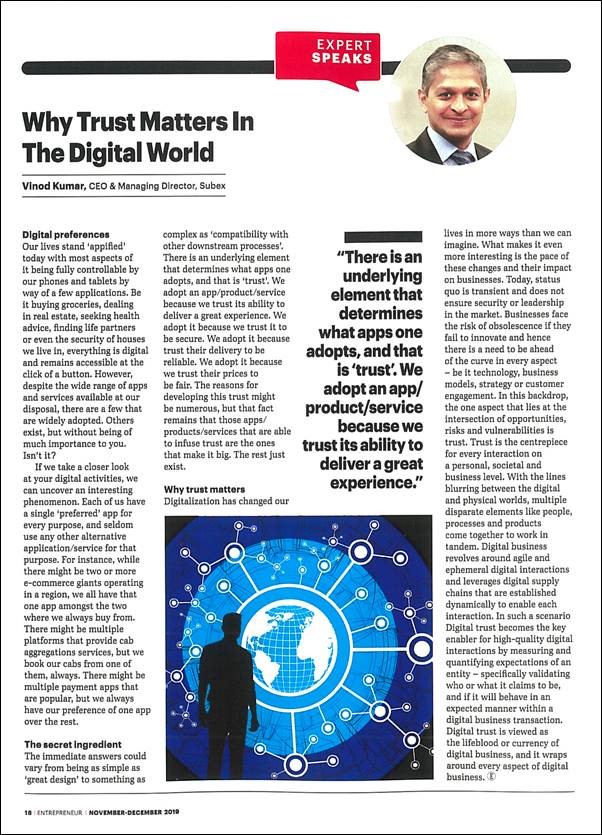Why Trust Matters In The Digital World?
Digital preferences
Our lives stand ‘appified’ today with most aspects of it being fully controllable by our phones and tablets by way of a few applications. Be it buying groceries, dealing in real estate, seeking health advice, finding life partners or even the security of the houses we live in, everything is digital and remains accessible at the click of a button. However, despite the wide range of apps and services available at our disposal, there are a few that are widely adopted. Others exist, but without being of much importance to you. Isn’t it?
If we take a closer look at your digital activities, we can uncover an interesting phenomenon. Each of us have a single ‘preferred’ app for every purpose, and seldom use any other alternative application/service for that purpose. For instance, while there might be two or more e-commerce giants operating in a region, we all have that one app amongst the two where we always buy from. There might be multiple platforms that provide cab aggregations services, but we book our cabs from one of them, always. There might be multiple payment apps that are popular, but we always have our preference of one app over the rest. Have we wondered why?
The secret ingredient
The immediate answers could vary from being as simple as “great design” to something as complex as “compatibility with other downstream processes”. However, there is an underlying element that determines what apps one adopts, and that is ‘Trust’. We adopt an app/product/service because we trust its ability to deliver a great experience. We adopt it because we trust it to be secure. We adopt it because trust their delivery to be reliable. We adopt it because we trust their prices to be fair. The reasons for developing this trust might be numerous, but that fact remains that those apps/products/services that are able to infuse the necessary trust are the ones that make it big. The rest just exist.
Why trust matters
Digitalization has changed our lives in more ways than we can imagine. What makes it even more interesting is the pace of these changes and their impact on businesses. Today, status quo is transient and does not ensure security or leadership in the market. Businesses face the risk of obsolescence if they fail to innovate or adapt and hence there is a need to be ahead of the curve in every aspect of business – be it technology, business models, strategy or customer engagement. In this backdrop, the one aspect that lies at the intersection of opportunities, risks and vulnerabilities is Trust. Trust is the centerpiece for every interaction on a personal, societal and business level — in both traditional and digital business models. With the lines blurring between the digital and physical worlds, multiple disparate elements like people, processes and products come together to work in tandem. Digital Business revolves around agile and ephemeral digital interactions and leverages digital supply chains that are established dynamically to enable each interaction. In such a scenario Digital Trust becomes the key enabler for high quality digital interactions by measuring and quantifying expectations of an entity – specifically validating who or what it claims to be, and if it will behave in an expected manner within a digital business transaction. Digital Trust is viewed as the lifeblood or currency of digital business, and it wraps around every aspect of digital business.
This article was originally published on Entrepreneur print magazine.




